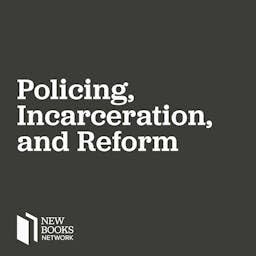Despite reform efforts that have grown in scope and intensity over the last two decades, the machine of American mass incarceration continues to flourish. In Ghost in the Criminal Justice Machine: Reform, White Supremacy, and an Abolitionist Future, formerly incarcerated activist and organizer Emile Suotonye DeWeaver argues that the root of the problem is white supremacy. During twenty-one years in prison, DeWeaver covertly organized to pass legislation impacting juveniles in California’s criminal legal system; was a culture writer for Easy Street Magazine; and co-founded Prison Renaissance, an organization centering incarcerated voices and incarcerated leadership. DeWeaver draws on these experiences to interrogate the central premise of reform efforts, including prisoner rehabilitation programs, arguing that they demand self-abnegation, entrench white supremacy, and ignore the role of structural oppression. DeWeaver intervenes in contemporary debates on criminal justice and racial justice efforts with his eye-opening discussion of the tools we need to end white supremacy—both within and outside the carceral setting. Ghost in the Criminal Justice Machine adds a sharp and unique perspective to the growing discourse on racial justice, incarceration, and abolition. This episode considers: parole boards; hidden factors that extend sentences; how power is structured; why most reforms repackage inequality; and ways to restructure power. Our guest is: Emile Suotonye DeWeaver, who is a formerly-incarcerated activist and a 2022 Soros Justice Fellow. California’s Governor Brown commuted his life sentence after twenty-one years for his community work. He has written for publications including the San Francisco Chronicle, the San Jose Mercury News, Colorlines, The Appeal, The Rumpus, and Seventh Wave. Our host is: Dr. Christina Gessler, who is an academic writing coach and editor. She is the creator, producer and show host of the Academic Life podcast. Playlist for listeners: Hands Up, Don't Shoot Freemans Challenge Stitching Freedom Education Behind The Wall What Might Be Carceral Apartheid No Common Ground Welcome to Academic Life, the podcast for your academic journey—and beyond! You help support the show by downloading and sharing episodes. Join us again to learn from more experts inside and outside the academy, and around the world. Missed any of the 300+ Academic Life episodes? Find them here. And thank you for listening! Learn more about your ad choices. Visit megaphone.fm/adchoices
続きを読む
一部表示
 2026/01/2944 分
2026/01/2944 分 50 分
50 分 2026/01/2546 分
2026/01/2546 分 57 分
57 分 1 時間
1 時間 25 分
25 分 55 分
55 分 1 時間 14 分
1 時間 14 分
